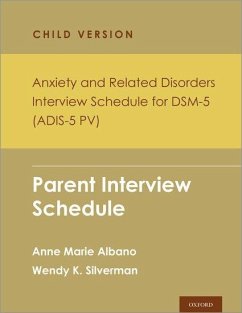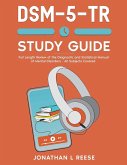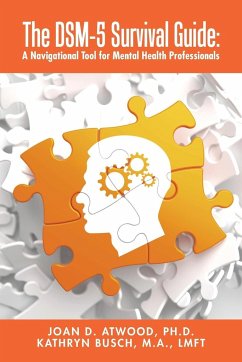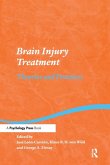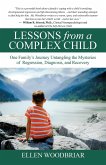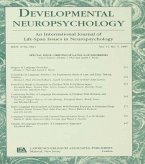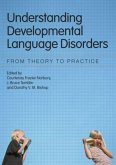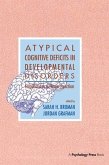Anne Marie Albano, Wendy K Silverman
Anxiety and Related Disorders Interview Schedule for Dsm-5, Child and Parent Version
Parent Interview Schedule - 5 Copy Set
Anne Marie Albano, Wendy K Silverman
Anxiety and Related Disorders Interview Schedule for Dsm-5, Child and Parent Version
Parent Interview Schedule - 5 Copy Set
- Broschiertes Buch
- Merkliste
- Auf die Merkliste
- Bewerten Bewerten
- Teilen
- Produkt teilen
- Produkterinnerung
- Produkterinnerung
Provides a semi-structured interview to assess DSM-5 anxiety and related disorders in children and adolescents.
Andere Kunden interessierten sich auch für
![DSM-5-TR Study Guide Full Length Review of the Diagnostic and Statistical Manual of Mental Disorders - All Subjects Covered DSM-5-TR Study Guide Full Length Review of the Diagnostic and Statistical Manual of Mental Disorders - All Subjects Covered]() Jonathan L ReeseDSM-5-TR Study Guide Full Length Review of the Diagnostic and Statistical Manual of Mental Disorders - All Subjects Covered22,99 €
Jonathan L ReeseDSM-5-TR Study Guide Full Length Review of the Diagnostic and Statistical Manual of Mental Disorders - All Subjects Covered22,99 €![The DSM-5 Survival Guide The DSM-5 Survival Guide]() Joan AtwoodThe DSM-5 Survival Guide23,99 €
Joan AtwoodThe DSM-5 Survival Guide23,99 €![Brain Injury Treatment Brain Injury Treatment]() Jose Leon-CarrionBrain Injury Treatment52,99 €
Jose Leon-CarrionBrain Injury Treatment52,99 €![Lessons from a Complex Child Lessons from a Complex Child]() Ellen WoodbriarLessons from a Complex Child20,99 €
Ellen WoodbriarLessons from a Complex Child20,99 €![Origins of Language Disorders Origins of Language Disorders]() Origins of Language Disorders56,99 €
Origins of Language Disorders56,99 €![Understanding Developmental Language Disorders Understanding Developmental Language Disorders]() Understanding Developmental Language Disorders66,99 €
Understanding Developmental Language Disorders66,99 €![Atypical Cognitive Deficits in Developmental Disorders Atypical Cognitive Deficits in Developmental Disorders]() Atypical Cognitive Deficits in Developmental Disorders68,99 €
Atypical Cognitive Deficits in Developmental Disorders68,99 €-
-
-
Provides a semi-structured interview to assess DSM-5 anxiety and related disorders in children and adolescents.
Produktdetails
- Produktdetails
- Verlag: Oxford University Press
- Seitenzahl: 108
- Erscheinungstermin: 23. April 2024
- Englisch
- Abmessung: 284mm x 218mm x 64mm
- Gewicht: 2472g
- ISBN-13: 9780197621967
- ISBN-10: 0197621961
- Artikelnr.: 67782401
- Herstellerkennzeichnung
- Libri GmbH
- Europaallee 1
- 36244 Bad Hersfeld
- gpsr@libri.de
- Verlag: Oxford University Press
- Seitenzahl: 108
- Erscheinungstermin: 23. April 2024
- Englisch
- Abmessung: 284mm x 218mm x 64mm
- Gewicht: 2472g
- ISBN-13: 9780197621967
- ISBN-10: 0197621961
- Artikelnr.: 67782401
- Herstellerkennzeichnung
- Libri GmbH
- Europaallee 1
- 36244 Bad Hersfeld
- gpsr@libri.de
Dr. Anne Marie Albano, is the Columbia University Clinic for Anxiety and Related Disorders (CUCARD) Professor of Medical Psychology in Psychiatry, Founder of CUCARD, and past President of both the Society for Clinical Child and Adolescent Psychology and the Association for Behavioral and Cognitive Therapies. She served as Editor and Associate Editor of major journals, and as a Principal Investigator for two NIMH-sponsored studies, the "Child/Adolescent Anxiety Multimodal Treatment Study" (CAMS) and the "Treatments for Adolescents with Depression Study" (TADS), as well as their follow-up studies. Dr. Albano has over 200 publications and is co-author of several cognitive behavioral treatment manuals. She is an internationally sought teacher and mentor of clinicians and clinical scientists. Dr. Wendy Silverman is the Alfred A. Messer Professor of Child Psychiatry, and Director of the Yale Child Study Center Anxiety & Mood Disorders Program. Dr. Silverman has been researching and treating anxiety disorders in children for four decades and she developed the Anxiety Disorders Interview Schedule when these disorders were first introduced in the Diagnostic and Statistical Manual, 3rd edition (DSM-III). She has published many scientific papers, chapters, and books over the decades. She has been the principal investigator of National Institute of Mental Health (NIMH) research- and career-awards to develop and evaluate treatments for anxiety disorders in children and adolescents. She has served on NIMH grant review panels including as Chair. Dr. Silverman served as an Associate Editor and Editor of major journals in clinical psychology. She is also actively involved in training and supervising the current and the next generation of mental health professionals.
1. Introduction
2. School History
3. School Refusal Behavior
4. Separation Anxiety Disorder
5. Interpersonal Relationships
6. Social Anxiety Disorder (Social Phobia)
7. Selective Mutism
8. Generalized Anxiety Disorder
9. Specific Phobia
10. Panic Disorder
11. Agoraphobia
12. Obsessive-Compulsive Disorder
13. Posttraumatic Stress Disorder (PTSD)/Acute Stress Disorder
Depressive Disorders
14. Major Depressive Disorder
15. Persistent Depressive Disorder (Dysthymia)
16. Disruptive Mood Dysregulation Disorder
17. Bipolar Disorder
Externalizing Disorders
18. Attention-Deficit/Hyperactivity Disorder (ADHD)
19. Conduct Disorder
20. Oppositional Defiant Disorder
21. Substance Use Disorders
22. Tic Disorders
23. Elimination Disorders
24. Non-Rapid Eye Movement Sleep Arousal Disorders
25. Screening Questions for Additional Childhood Disorders
26. ADIS-5 Composite Summary Form
2. School History
3. School Refusal Behavior
4. Separation Anxiety Disorder
5. Interpersonal Relationships
6. Social Anxiety Disorder (Social Phobia)
7. Selective Mutism
8. Generalized Anxiety Disorder
9. Specific Phobia
10. Panic Disorder
11. Agoraphobia
12. Obsessive-Compulsive Disorder
13. Posttraumatic Stress Disorder (PTSD)/Acute Stress Disorder
Depressive Disorders
14. Major Depressive Disorder
15. Persistent Depressive Disorder (Dysthymia)
16. Disruptive Mood Dysregulation Disorder
17. Bipolar Disorder
Externalizing Disorders
18. Attention-Deficit/Hyperactivity Disorder (ADHD)
19. Conduct Disorder
20. Oppositional Defiant Disorder
21. Substance Use Disorders
22. Tic Disorders
23. Elimination Disorders
24. Non-Rapid Eye Movement Sleep Arousal Disorders
25. Screening Questions for Additional Childhood Disorders
26. ADIS-5 Composite Summary Form
1. Introduction
2. School History
3. School Refusal Behavior
4. Separation Anxiety Disorder
5. Interpersonal Relationships
6. Social Anxiety Disorder (Social Phobia)
7. Selective Mutism
8. Generalized Anxiety Disorder
9. Specific Phobia
10. Panic Disorder
11. Agoraphobia
12. Obsessive-Compulsive Disorder
13. Posttraumatic Stress Disorder (PTSD)/Acute Stress Disorder
Depressive Disorders
14. Major Depressive Disorder
15. Persistent Depressive Disorder (Dysthymia)
16. Disruptive Mood Dysregulation Disorder
17. Bipolar Disorder
Externalizing Disorders
18. Attention-Deficit/Hyperactivity Disorder (ADHD)
19. Conduct Disorder
20. Oppositional Defiant Disorder
21. Substance Use Disorders
22. Tic Disorders
23. Elimination Disorders
24. Non-Rapid Eye Movement Sleep Arousal Disorders
25. Screening Questions for Additional Childhood Disorders
26. ADIS-5 Composite Summary Form
2. School History
3. School Refusal Behavior
4. Separation Anxiety Disorder
5. Interpersonal Relationships
6. Social Anxiety Disorder (Social Phobia)
7. Selective Mutism
8. Generalized Anxiety Disorder
9. Specific Phobia
10. Panic Disorder
11. Agoraphobia
12. Obsessive-Compulsive Disorder
13. Posttraumatic Stress Disorder (PTSD)/Acute Stress Disorder
Depressive Disorders
14. Major Depressive Disorder
15. Persistent Depressive Disorder (Dysthymia)
16. Disruptive Mood Dysregulation Disorder
17. Bipolar Disorder
Externalizing Disorders
18. Attention-Deficit/Hyperactivity Disorder (ADHD)
19. Conduct Disorder
20. Oppositional Defiant Disorder
21. Substance Use Disorders
22. Tic Disorders
23. Elimination Disorders
24. Non-Rapid Eye Movement Sleep Arousal Disorders
25. Screening Questions for Additional Childhood Disorders
26. ADIS-5 Composite Summary Form

